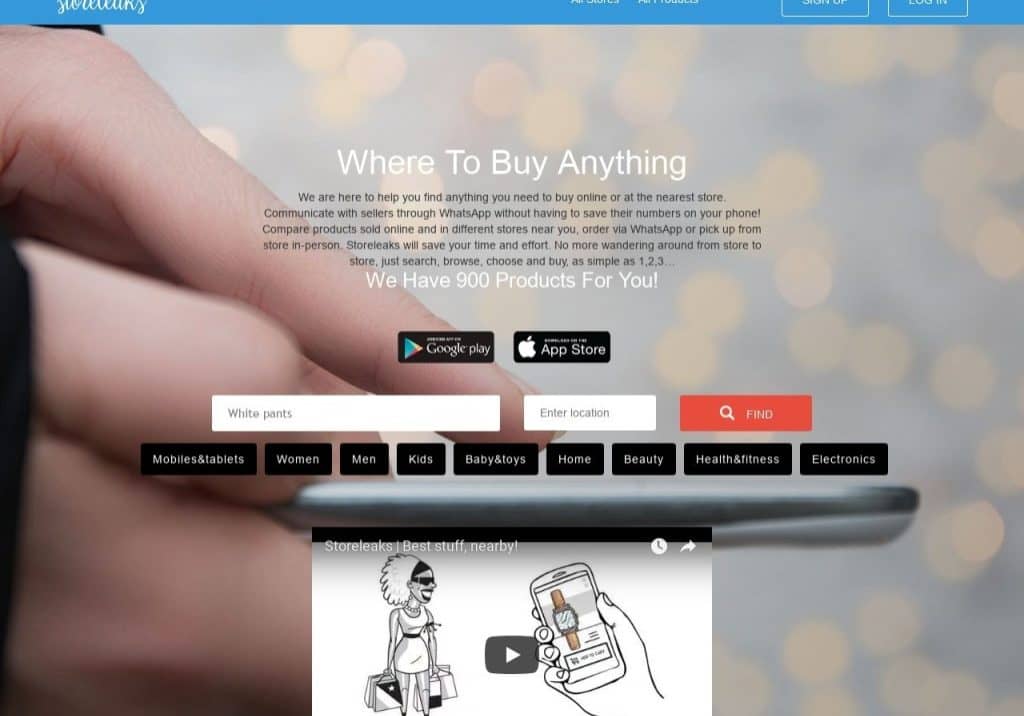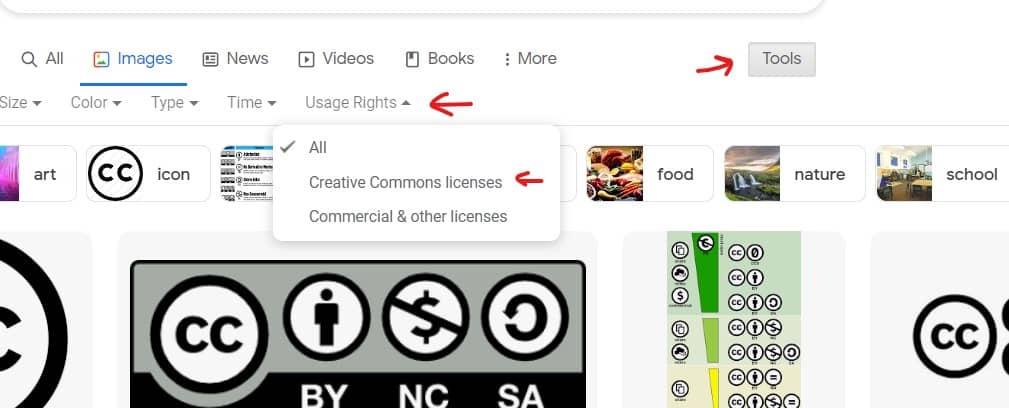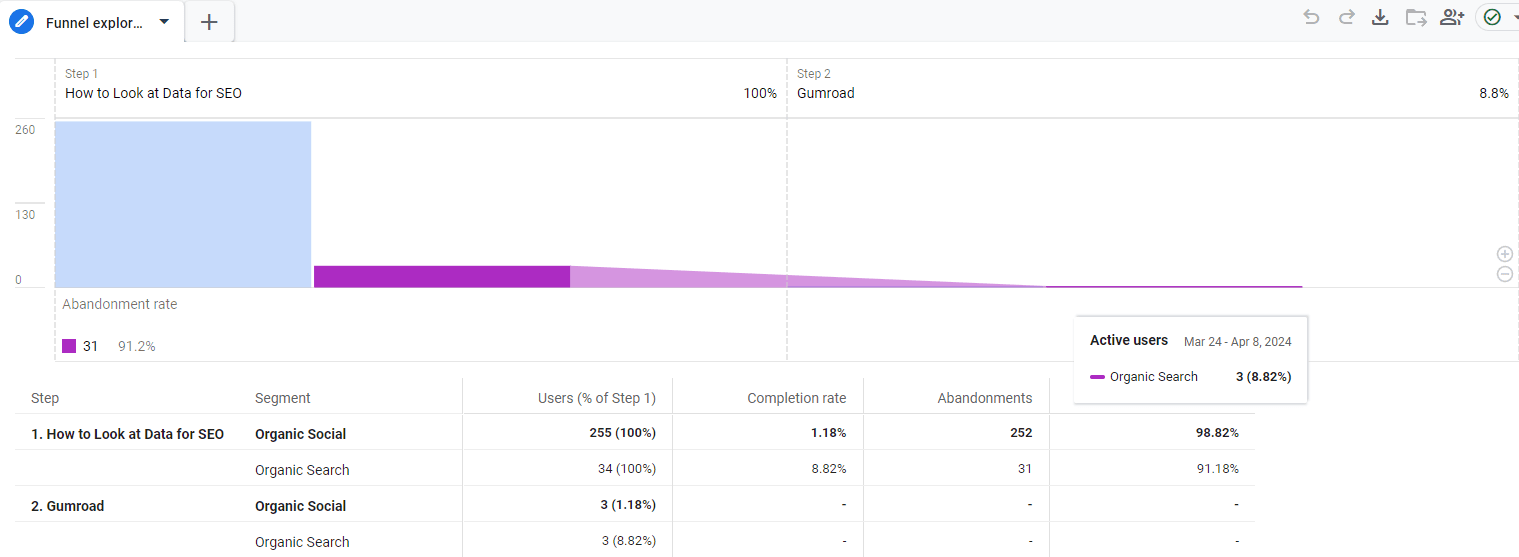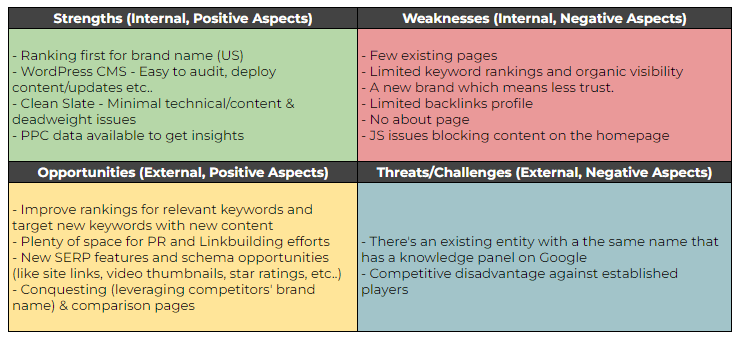SEO for Startups from an Ex-Startup Founder

Many people don't know that, but I’m an ex-startup founder. I’ve also had the pleasure of being part of some remarkable startups programs like turn-8 pre accelerator in Dubai and Y-Combinator (the world’s most powerful startup incubator program) online startup school back in 2017 that offered both learning and direct mentorship with some of the most successful and smart startup founders. So I know a thing or two about SEO for startups and I'm sharing it all in this post! [This post is based of a talk I gave last year, slides here]
What's a startup?
First, before I jump into it, I want to differentiate between startups and any other new business. A startup is not just another new business. A startup is a company focused towards fast growth.
You may say any business is focused on fast growth, but that’s not true. If we’re talking about a restaurant or a barbershop, their goal is to grow in their local area or even neighborhood or city. A restaurant in New York is not interested in targeting & gaining customers living in Arkansas for example. So their growth goals are limited.
A startup’s ultimate goal is making something many people want and reach and sell to all those people. We are talking about companies like Airbnb, Twitter, FB, Twitch, Google, etc…. All of these companies were startups….
A startup usually has an innovative component like a new product or a service. A startup is not about just being a new website, because I’ve seen that confusion before and a lot of people think that any new business (and therefore the website that comes with the business) is a startup.
Why is this distinction important? Because, working in a startup means a set of different challenges. Anyone that worked in a startup knows that there’s
- Mindset and expectations
- Budget limitations and it’s common for startups to be bootstrapping
- Lack of understanding of SEO, some ppl say SEO is not for startups
- A Focus on fast growth to be able to raise funds from investors, while SEO is usually a mid to long term strategy
And while those challenges may occur in any new traditional business, they are more prominent and clear in a startup environment.
Working as an SEO for a Startup

It’s also important to mention that, in a startup you’re usually expected to step outside your job description and do whatever it takes to make this startup successful. As other SEOs have shared with me, working as an SEO specialist or manager for a startup rarely includes “just SEO”, you may have to write content, monitor different channels, work on conversion optimization, etc.…
If you’re not comfortable with that, or that’s not something that interests you, then maybe working at a startup is not for you.
How does SEO for a Startup look like?
This is a screenshot from my startup. I started focusing on the SEO aspect early 2017 for 6 months give or take (I took it down in 2019). I dedicated 10 hr/week for SEO. And although these numbers don’t look very big as one may want them to be, it’s amazing to know that these numbers were achieved with zero budget, zero authority, this was a brand new website, and I was the only person doing SEO work.

SEO tactics for Startups
So what I will be talking about is a set of tactics and ways to approach SEO in a startup environment. It’s worth mentioning that many of those tactics would also be applicable with any other business, not necessarily limited to startups, but I found those techniques very useful when I was working on my own startup.
Basically, the same main buckets of SEO are carried along. Technical, on-page, and off-page, but one more thing is the startup mindset which should be there when approaching any of those buckets. I will be integrating the startup mindset tips thought this blog.
SEO before launching a Startup
It is very rare for an SEO to be invited to join a startup before its launch, but if you’re lucky and that’s the case for you, there are few things that can help jumpstart your SEO efforts.
Aged Domains
First, you may want to consider buying an aged domain.
An aged domain is a domain that has been used in the past and has some history and sometimes good relevant backlinks and authority.
You may want to look for one of those domains and use it if relevant and if that’s an option for you. For me, I couldn't use an aged domain, because I had some naming ideas for my startup.
Custom Websites
Another thing I'd recommend is, avoid building a custom made website. Specially if there’s no need for one. Mark Zuckerberg built FB from scratch because there were not ready FB WordPress templates out there! So you don’t need to build your website from ground up, unless you really need to, but if you are selling a unique innovative physical product, you may just want to settle for a simple plug-n-play CMS like WP which can definitely be changed in the future down the road if ever needed.
One of the mistakes I did, is I went for a custom made website and hired a dev team in Ukraine. While I built the blog on WordPress, the rest of the website was not easy to handle and looking back, I could've used one of those ready WordPress templates and did minor customizations for my MVP.
So, if you end up having to work on a custom-made website, you can still have a blog or a resource center built on WordPress. The Dev team can easily implement WordPress on a sub-folder for you which will give you some access and control. It’ll also make things faster for you, and doing things fast is very important in a startup!
Purchase Existing Small Blogs
Another thing to consider is buying an existing relevant website/blog. So for example if the startup is in the hospitality sector, you may want to look for travel blogs, many of those have great & unique content but are not really monetizing strongly as bloggers often depend on affiliate links and ads to generate revenue and they may not be generating as much as they want them to. So it’s worth considering buying an exciting blog relevant to your niche, migrate the content to your website and execute an SEO migration process to get some initial quick wins.
Technical SEO after Launch
If you're doing SEO for an existing website, my advice is to aim for the basics. You don’t need and I don’t think it’s possible in a startup environment to have your website 100% optimized. Just aim for few basic things that you cannot compromise, like:
Indexability
for search engines, you have to be in it to win it, so you cannot compromise on indexability, if your pages are not indexed in Google, they may not as well exist!
SEO Basics
Some other basic things include, make sure that GSC, GA are setup. Sitemap and robots.txt exist and optimized, & the website is secure.
Internal Linking
Finally, build a good internal linking structure. Optimize footer links, navigation links, and other internal links opportunities.
In summary, when it comes to technical SEO focus on high impact issues only. Things like site speed and core web vitals which is a kind of a buzzword these days may not significantly impact your website from an SEO standpoint but if you decided to pursue them may require a lot of effort which you many not have the resources for in a startup.
On-page SEO for a Startup
First and foremost, please don’t obsess over search volume. Search volumes generated by third party tools are not accurate. Zero volume keywords matter. Third party tools like Ahrefs and SEMRush display only the volumes they were able to capture, and they definitely cannot capture everything.
This point is generally very important but specifically important when you’re working with a startup, because many times, startups are offering an innovative product/service so you may not find any search volume for relevant keywords…..
Just think about how many people were searching for the term “social media” before 2004? I’ve seen some SEOs that turn away businesses, telling them SEO is not for them just because there’s no search volume for some of the keywords. Search volume isn’t an accurate measure of demand. There are better ways to get an overall estimate of search demand (Search TAM), but that's a chat for another day.
Content Strategy for a startup
Wondering how to approach keyword research and content strategy for a startup?
The usual process for a content strategy works like this:
- You audit the content on the website,
- Decide which content needs to be updated, and which needs to be pruned if it’s not getting any clicks in the last 6 or 12 months,
- and then do some competitor analysis and come up with new content ideas,
- and then translate all of this into a content plan.
Usually, even if you are working on a new website, you can still lean on competitors data.
But how do you create a content strategy for a startup that has a new website with very little content, has a new product/service usually with an innovative component so keyword data may not exist to support you. And many often there are no direct competitors or in other words there are no other websites doing exactly the same thing you are doing.
The way you approach this is different, and again although this can work with other traditional businesses, I found this to be the best approach for creating a content strategy for a startup.
- First you need to know your customers very well. Their pains and gains, why they maybe interested in this product, what is undesirable about their current solution/situation, what are their issues and concerns? And also what makes your customers happy? Is it saving time? Money or effort? What are they looking for? Is it more features, is it about performance or quality, is it status? What would make your customers life easier?
- Another place to examine, is the alternatives, and these don’t have to be direct competitors because there may not be any direct competitors. Look for alternatives, and by that I mean, ask yourself, where would your customers go, if they didn’t come to your website? What is the alternative solution to their problem?
- Another often overlooked thing is using data from paid search. Data from paid search can show you validated keywords that have attracted your customers. Some SEOs even run paid ads to test the keywords before building an entire strategy around them.
- Then you can think of keywords. What you want to do is to optimize your content with keywords, regardless of their search volume.
- Lastly, testing. Understand that the content process is a continuous process, it’s not a one and done. You create content, you optimize it and launch it, get back to it 3-4 months down the road, see how it’s performing, update it if needed and repeat…. Create, monitor, update, repeat.
Let’s look at an example from my own startup Storeleaks. Storeleaks was a platform to help you find anything you need to buy in a nearby store. So for example if you want to buy a pair of black oxford shoes and you live in London, storeleaks will show pictures, prices and exact location of all nearby stores carrying black oxford shoes and you can communicate directly with the store owner too if you need to.
There was no real competitor to Storeleaks at the time, and the alternatives were Ecommerce websites where you can just order the item you want. If I used traditional SEO, I would have targeted common Ecommerce keywords like "black oxford shoes” etc....
So what I did was understand my customer segments, those are people who want to buy something NOW and get it NOW. I looked at the Ecommerce space, tested some keywords, and then decided to go after “where to buy…” keywords:
- where to buy gold in dubai
- where to buy abaya in dubai
- where to buy baby stuff
- where to buy shea butter in dubai
- where to buy bed sheets in dubai
- where to buy cheap plants in dubai
- where to buy dresses in dubai
- where to buy diamonds in dubai
From there I was able to tailor my content strategy, and create content to really help my customers and not just promote my service. I created “where to buy” blog posts for each of the commonly searched products and listed where this item can be found, and also listed my service there. And guess what? This is how many people found my service and communicated with store owners, and picked up their items!
Many people would be reluctant to follow that approach as they may say if you list where can people buy what they need, why would they still use your service? Well first of all it worked and they did, second of all because my service still made it easier for them!
Now let’s look at a famous startup, Tesla. Let’s say Elon Musk came to you and hired you as an SEO very early on before electric cars were on demand and before people knew all about them and asked you to create an early SEO content strategy to introduce Electric cars to consumers…
The brief included the following information about Tesla Electric cars:
- they are cheaper to operate and maintain,
- they reduce greenhouse gas emissions,
- they deliver better performance.
That’s the brief….
So if you followed the traditional SEO process for creating content, you would be targeting keywords like:
- electric cars,
- cheap electric cars,
- are electric cars worth it, etc
and if you notice these are all for people who already know about electric cars, and we can find those keywords today because everyone now knows about Tesla. But in our startup scenario, these will not work.
What would work is something built on understanding your customers, their needs, pains and gains.
Keywords like:
- fastest accelerating car 2021 (since Electric cars have faster acceleration, some people are looking for that, they may not know anything about electric cars, but they know that they want faster acceleration)
- A keyword like “Car gas efficiency”(for people who want to reduce their gas consumption and costs, electric are cheaper to operate, so you can also include this category of people in our content strategy)
- A keyword like “What kind of cars have zero emission?” (also targets people who care about the environment and that also makes them the right consumer for Tesla)
If you noticed, many of these keywords are for people who are looking to buy a car, so by focusing on the customers, what they want and what they don’t like about their current solution (traditional gas operated cars), you are able to tailor a content strategy that works for a startup…
Things to keep in mind
- For each piece of content, always decide what CTA you will include. What do you want people to do when they land on your website. Don’t waste that!
- Another thing which is related to the startup mindset is that you may want to focus on a particular segment of the market, and dominate it, then move to the next. Find the smallest insignificant segment in the market and attack it first. Then once you dominate it, you can move on to other segments. This is a very common approach in startups, think of PayPal and how it was first targeting eBay users only, and how FB was for Harvard students only, similarly you can focus on one customer or market segment and roll from there.
Authority for Startups
The third SEO bucket is authority. There’s a misconception in the SEO community and I know this is not a popular opinion, but Authority is not just about backlinks.
I’m not saying that backlinks don’t matter, because they definitely do. In fact if you can get backlinks, I highly recommend you do!
But I’m going to show you 2 tactics that you can also do when you’re on a low budget and don’t have the capacity to invest in blog posts and outreach.
Social Signals
So for a page to be marked as popular by search engines, backlinks are not the only metric. Other things like social signals matter. Likes, comments, and shares matter. And if you think about it, there’s a co-relation. Popular posts get more engagement on social media, and therefore may naturally attract backlinks and and brand mentions.
So my recommendation is to audit your company’s social profiles and create them if they don’t have them setup already and make sure the website link is in the "about section" and make sure that they include URLs in every post they share (as much as possible and non-spammy). Why not include a link to your website or to a blog post too to maximize the benefit?
Leverage Facebook Groups
Another thing I did and I think it’s to do in the beginning is to join relevant Facebook groups and use them to do 2 things: one is post content + a URL to your website on those groups, as specialized groups usually generate high engagement, the second thing is to use those groups to know your customers more.
Obviously you cannot do this forever, but one startup mindset tip I want to highlight is:
it’s ok to do things that don’t scale, which means it’s ok to do things manually in the beginning, things that you cannot replicate on a large scale…
I have done this in the early days of my startup, and anyone who worked in a startup that is bootstrapping understands the challenge, and my advice is never say never! Be open to try different things and experiment with this tactic.
Creative Commons
Another tactic that is not often used by SEOs which I consider a missed opportunity is the creative commons license. The creative commons is a license that tells users how they are allowed to use content on your website. So for example, if they want to use a photo on your website, with the creative commons you can tell them:
- Yes you are allowed to use them, with the condition of giving attribution, i.e linking back to your website….
There are plenty of resources online on how you can mark your content like images, infographics or even information under the creative commons license. Even Google respects the creative commons license and offers a filter specifically for it.

Is SEO worth it for Startups?
Generally, it depends. But if you will pursue SEO for a startup, make sure you have the right mindset and game plan.
Need help with your startup? Reach out to me on LinkedIn, I live there!
The SEO Riddler Newsletter
Join the newsletter to receive the latest updates in your inbox.



